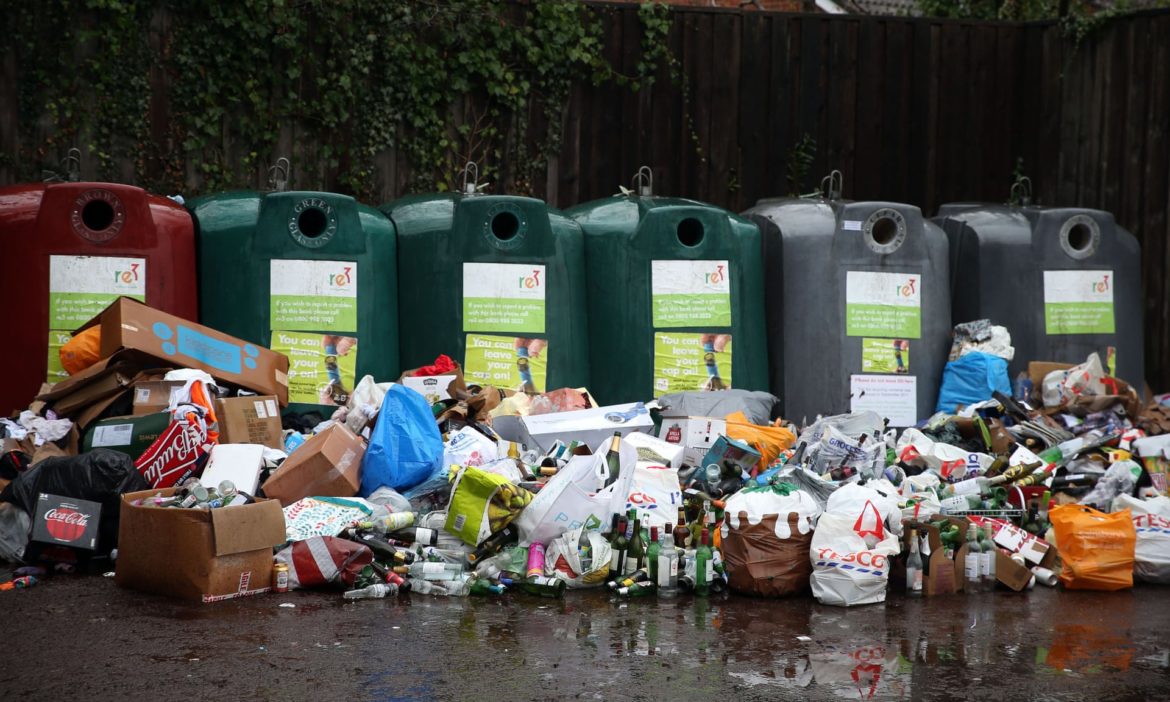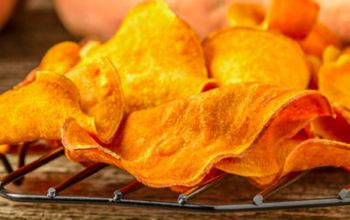
Protecting the environment can seem daunting for the modern consumer. Much as we’d like to live sustainably and leave natural resources intact for the next generation, everything seems to come in packages, and day in, day out, we find ourselves using these and throwing them away. Who can help us to break this cycle of use and discard – who can stop us from slowly turning the world into a trash pile?
Answer: the people who make the packaging. And happily, they are now doing just that, including manufacturers of the many snack foods we know and love (perhaps a little too much!). As this article aims to show you, there are a host of ways in which the humble snack wrapper can be made much less of a burden on Mother Earth.
There are broadly six methods of improvement that all good snack manufacturers should consider using:
- The polluter pay principle.
- Biodegradable wrapping from potato starch.
- Recycling of crisp packets.
- Use of bio plastic
- Making and implementing production policies.
- Creating awareness through their manufactured snacks.
Through the Polluter Pay Principle
The first question we should be asking is: when pollution occurs, who should foot the bill? States in the early centuries had the answer: make the polluter pay. Nowadays, this simple principle is getting a modern twist in many countries, where making the polluter bear the costs of the clean-up has been intertwined with the concept of recycling.
Snacks manufacturers normally produce snacks in cans and bags or plastic containers for goods such as crisps and chips. After consumption, people often fail to recycle. That’s on them – or is it? Governments in countries such as Germany, Netherlands and Belgium have decided not. They’ve imposed the Extended Producer Responsibility (EPR) on producers and manufacturers, which means that the makers bear the responsibility even after the product has been bought and used. In effect, the producers of manufactured goods are compelled to pay the entire cost of recycling their products as a way of imposing the recycling scheme on all manufactured goods.
Needless to say, this makes the production of non-biodegradable packaging much costlier, and manufacturers are incentivised to drop this approach. This leads us on to…
Biodegradable Wrapping from Potato Starch
The very same stuff that makes the snack can make the package it comes in too. That’s right: you can make crisp bags out of potatoes. Waste spuds, instead of going in the bin, can form 100% compostable, vegetable-based packaging that is free from harmful chemicals or toxins that are degrading to the environment. You may wonder what fancy and expensive technology is necessary to make this happen – and yes, there is an up-front cost involved in obtaining the raw materials. But once you have the capability to turn old spuds into packets, production costs become more economical even for large-scale snack manufacturers (no need to strategize on how to grow large scale potatoes to get the raw materials). Win-win: the environment gains, and money is saved.
Recycling of Crisp Packets
Needless to say, snack manufacturers produce a lot of chips in plastic bags and release them to the market. The demand-supply ratio is high on both ends, and the risk is of more and more plastic bags entering circulation cope with it. How does the industry meet increasing demand while also encouraging the customer to recycle?
There are some well-attested means of bumping up the recycling rate. You are probably already familiar with deposit return systems for plastic bottles and containers: you’d probably also admit you’re not always the best at using them. Snack manufacturers can lead the way here, helping to jog the consumer conscience with advertising and awareness campaigns. It’s vital that even as they open the bag or unscrew the cap, people understand the importance of returning used packaging to the industry, as well as the repercussions of not doing so.
If that doesn’t work, manufacturers might want to think about getting tough. Another means in which snack manufacturers can see to it that the concept of recycling of crisp packets has been exercised is by introducing some kind of punishment where one packages snacks in bags that are not recycled. Such phrased penalties shall motivate most snack manufacturers if not all, to stay on course and promote recycling of plastic bags or containers even among their customers.
It’s all very well getting the consumer to recycle, but what actually happens to the bags after that? Anything useful? Yes. Different plastic bags are collected and assembling by a fiendishly clever system that cleans through them and revamps them: hey presto, they are now functional for another use. A keen eye might spot a business opportunity here, and indeed there is one: recycling can be applied as a strategy for the snack manufacturers to expand business because brand new products to be packaged in the recycled material. And it is, of course, great for the environment: research shows that recycling 1 ton of plastic material saves about 7.4 cubic yards of landfill space, which might otherwise form a blockage in a sewer and expose us to diseases. Conserve the environment and still be able to expand in business: another win-win situation.
Through the Use of Bio Plastic
Bio Plastic Starch (BPS) is a polymeric material that is partly crystalline that is mainly constituted of destructurized starch. The BPS is just as functional as the normal plastic material with the added bonus of being biodegradable. Due to its chemical properties, it is very efficient and easily decomposes when disposed, unlike plastic bags. Bio plastics are also lightweight, thus manageable, and can be easily manipulated in whatever shape is preferred. Best of all for the company accountant, bio plastic is just as cheap as the regular kind. Lastly, bio plastic starch does not release harmful substances during decomposition, which is not always the case for regular plastic. So nothing is lost in terms of manageability, durability or even affordability: in fact costs will be cut on budgeting for new wrappers. It really is a no-brainer.
Through Making and Implementation of Production Policies
You might despair that policy is the preserve of the government, something rarely thrown back to the court of the citizens. However, snack industries are still given a role to overlook the implementation of product policies, and these form a set of rules regarding the manufacturing of goods for human consumption, including snacks. Product policies set the minimum requirement for any manufactured goods intended for human consumption, and can of course be a place where high environmental standards are enshrined in procedure.
Product policies, then, are one place where the bar for environmentally friendly packaging can be set high by manufacturers. They hold the manufacturer accountable for their products, enabling a ground basis to implement the polluter pays principle. When the manufacturer fails to live up to the standard, they are liable to pay the cost. Holding manufacturers accountable for their own produce in this way cultivates a society that can better trace the link between a product and its environmental hazards.
Creating Awareness Through Their Manufactured Products.
Heightening awareness has been instrumental over the centuries as a means to advocate for the conservation of the environment, and it is still applicable today. People need a constant reminder that we owe it to the future generation to act sustainably and conserve the environment. Snack manufacturers can take it upon themselves to advocate for conservation of the environment by simply printing a message on their product packet, emphasising the dangers of environmental negligence, and the importance of recycling. And why stop there? Larger manufacturers have the means and the budget to hold talks, pay for billboards, even use cars to get the message across. The importance of social media can of course not be underestimated either. It really is up to them to take the message to the consumer: there are better ways to dispose of the packet!
In conclusion, a sustainable. protected environment is the right and the responsibility of all. Yes, manufacturers have to play a big role in helping conserve it, but they cannot work alone: we are the one who uses their products. By cooperating with them, we will be able to achieve a clean and healthy environment. Plastics are a very good place to start: they have a myriad of everyday uses such as appliances, rubbish bag, caps, utensils, children’s toys and so on, and with the sheer number of snacks being manufactured and consumer across the globe, there is no room for complacency either when dipping into a humble bag of crisps or when making them. Through the various means I’ve given in this article, consumer and manufacturer can work painlessly together to reduce the environmental burden of this packaging.



